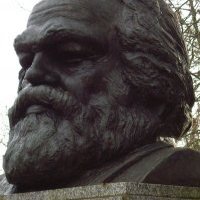Papers by pierluigi chiassoni
Law and philosophy library, 2019
Law and philosophy library, 2019
By the end of the 21th century, the disparate cognitivist views endorsed by the exegetical jurist... more By the end of the 21th century, the disparate cognitivist views endorsed by the exegetical jurists, Savigny, the “first” Jhering, Windscheid, and their fellows began to be perceived, and severely criticized, as false and obnoxious to the legal culture and the legal profession by a generation of jurists and legal theorists who, following the lead of the revolutionary instrumentalist turn advocated by the “second” Jhering, brought into the law the general spirit of derogation and impatient ennui for the long siecle that was finally drawing to a close—though they had to wait until 1914 for its final, ominous, demise.
Routledge eBooks, Feb 17, 2021
Materiali per una storia della cultura giuridica, 2017
Analisi e diritto = Análisis y derecho = Law and analysis = Droit et analyse = Análise e direito, 2015

Revista Jurídica da Presidência, Sep 29, 2017
RESUMO: Os Estados Constitucionais têm compromisso com a proteção às liberdades de pensamento e r... more RESUMO: Os Estados Constitucionais têm compromisso com a proteção às liberdades de pensamento e religiosa. Esse compromisso, no entanto, é desafiador por dois motivos: primeiro, porque requer delicada resolução de problemas conceituais, de proteção, que têm ligação com as noções individuais de liberdade de consciência e de religião, o conteúdo exato dessas duas liberdades e seus inter-relacionamentos; depois, porque requer o desenvolvimento de estratégias de proteção para problemas que dizem respeito à identificação da melhor forma de executar essa tarefa. Este trabalho está dividido em duas partes. Nesta primeira, argumenta-se sobre como lidar com problemas conceituais com base em um conceito liberal e individualista de liberdade de consciência. Na segunda, faz-se um esboço de uma doutrina para proteção da liberdade de consciência em uma sociedade religiosa, que defende a concessão de um direito geral à objeção de consciência tanto de forma negativa quanto positiva.
Marcial Pons, ediciones jurídicas y sociales eBooks, Jun 15, 2007
The Age of Analysis, from the 1950s onward, is characterized by theories of legal interpretation ... more The Age of Analysis, from the 1950s onward, is characterized by theories of legal interpretation and argumentation in which some variety of analytical philosophy is employed to find and develop tools for properly performing philosophical inquiries on those subjects.
Marcial Pons, ediciones jurídicas y sociales eBooks, Oct 1, 2012
Marcial Pons, ediciones jurídicas y sociales eBooks, Jan 7, 2010
... (o sea, informado a los principios de la justa laicidad, en las palabras del papa Juan Pabl... more ... (o sea, informado a los principios de la justa laicidad, en las palabras del papa Juan Pablo II),3 que es ... F. Bertolini, Prin-cipio di laicità ed attitudine dello Stato alla autonoma determinazione di sé, Contribución al debate Laicità e Stato costituzionale, Associazione Italiana dei ...

Revista Jurídica da Presidência, Jan 31, 2018
RESUMO: Os Estados Constitucionais têm compromisso com a proteção às liberdades de pensamento e r... more RESUMO: Os Estados Constitucionais têm compromisso com a proteção às liberdades de pensamento e religiosa. Esse compromisso, no entanto, é desafiador por dois motivos: primeiro, porque requer delicada resolução de problemas conceituais, de proteção, que têm ligação com as noções individuais de liberdade de consciência e de religião, o conteúdo exato dessas duas liberdades e seus inter-relacionamentos; depois, porque requer o desenvolvimento de estratégias de proteção para problemas que dizem respeito à identificação da melhor forma de executar essa tarefa. Este trabalho está dividido em duas partes. Nesta primeira, argumenta-se sobre como lidar com problemas conceituais com base em um conceito liberal e individualista de liberdade de consciência. Na segunda, faz-se um esboço de uma doutrina para proteção da liberdade de consciência em uma sociedade religiosa, que defende a concessão de um direito geral à objeção de consciência tanto de forma negativa quanto positiva.
Universidad del Externado de Colombia eBooks, Aug 1, 2013

Law and philosophy library, 2019
It is commonplace distinguishing two main varieties of legal argumentation. These are factual arg... more It is commonplace distinguishing two main varieties of legal argumentation. These are factual argumentation (argumentation "in fact" or "as to the fact" of the case) and interpretive argumentation. 1 The former concerns the justification of factual sentences, i.e., sentences about the relevant facts to a lawsuit (like, e.g., "John Smith pushed a twenty-inches knife into Henry Doe's chest, between the third and fourth left rib, on May 5, 2019, at about 9.30 pm, in the reading room of the Union Club"), and is typically deployed for claiming such sentences to be "true", "false", "established beyond any reasonable doubt", "utterly (un)sound", etc. The latter concerns the justification of interpretive sentences, i.e., sentences concerning the meaning of legal provisions (like, e.g., "Section Y of the Traffic Code expresses the norm N i ", "The term 'T' in section Z of the Civil Code refers to C 1 … C n ", etc.), 2 and is typically deployed for claiming such sentences to be legally "correct", "right", "wrong", "true", "false", etc. As soon as we move from the needs of ordinary law-jobs to the more demanding requirements of legal theory, however, the very notion and scope of interpretive 1 Interpretive argumentation is, in turn, one variety of argumentation "in law", or "as to the law", along with argumentation concerning the filling up of gaps (integrative argumentation), the resolution of antinomies (normative conflict argumentation), etc.

Law and philosophy library, 2019
The paper is part of a larger project that aims at arguing for a construction conception of legal... more The paper is part of a larger project that aims at arguing for a construction conception of legal meaning. The basic claim I wish to make may be phrased as follows: the meaning of legal provisions neither is simply discovered, nor is a matter of wholesale creation, though it may involve significant pieces of interpretive creativity; rather, it is constructed out of pre-existing materials through a typically reflexive and holistic process. In support of the construction picture, four different, conspiring, arguments seem worthwhile considering: an argument from interpretive games (and Grice-inspired interpretive maxims); an argument from the dispute between literalism and contextualism; an argument from the failure of semantics-driven legal pragmatics, and, finally, an argument from the failure of semiotic vindication of “texts’ rights” and “the limits of interpretation”. Only the second argument, the argument from the dispute between literalism and contextualism, will be deployed here. In the first part of the paper, I will provide an outline of two competing jurisprudential theories about legal meaning and interpretation: semantic quasi-cognitivism and pragmatic non-cognitivism. In the second part of the paper, I will offer a bird-eye account of the dispute between literalism and contextualism in contemporary philosophy of language and linguistics. In the third, and last, part of the paper, I will pause to reflect on what a jurist concerned with legal meaning and legal interpretation could get out of the dispute between literalism and contextualism. I will claim that the dispute provides substantive suggestions for getting rid of semantic quasi-cognitivism and endorsing a sophisticated, meaning construction version of pragmatic non-cognitivism.
Anali Pravnog fakulteta u Beogradu, Dec 20, 2021
The paper makes the following claims. First, the most important problem for contemporary legal ph... more The paper makes the following claims. First, the most important problem for contemporary legal philosophy is contrasting the morally disgusting state of the world. Second, qua jurisprudents, the problem must be dealt with indirectly. Third, the indirect way of dealing with the problem requires pursuing the goal of promoting the rule of reason, the dominance of rationality, over law and legal thinking. Fourth, such an overall goal is to be pursued by breaking it down into five more specific goals: namely, promoting the epistemic, methodological, conceptual, instrumental, and substantive rationality of law and/or legal thinking. Fifth, pretentious and idle ways of doing jurisprudence must be put aside.











Uploads
Papers by pierluigi chiassoni